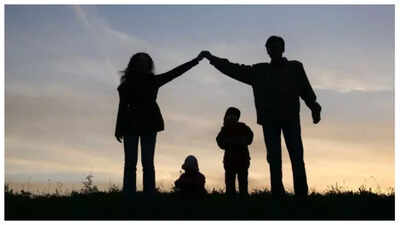
When it comes to parenting, there is no one size fits all. Parents, while completely well meaning, sometimes go to extreme lengths to discipline their children, even resorting to shouting, screaming and even occasional violence.
Unfortunately these methods don't always work, because to discipline kids requires patience, the right intent, well planned out approach, and contribution of both partners. And when it comes to discipline, there are many techniques parents make use of, out of which “good cop, bad cop” technique is quite popular. The technique involves one parent playing the“bad cop” role by being strict, while the other plays the “good cop", by being somewhat lenient, and offering a lending year.
But does this method really work when it comes to raising well-behaved children? Let's explore deeper...

What is this techniqueThe origins of the good cop, bad cop technique comes from police interrogation tactics, where one officer is tough and demanding, and the other is understanding. The aim remains the same - to get the accused to confess/realise his mistake. In parenting, it translates into the parent acts as the disciplinarian who sets and enforces rules strictly, while the other parent is more relaxed, and plays a role in softening the blow.
This division of roles can seem like a way to balance discipline with warmth.For example, if a child misbehaves, the “bad cop” parent might give a timeout or deny a privilege, while the “good cop” parent comforts the child afterward or tries to explain the situation calmly, even making the kid realise why he was wrong in the first place. This approach is often used to manage conflicts and keep peace in the family.Why is this technique usedMany parents fall into this pattern naturally, without making much effort.
Sometimes, one parent spends more time managing daily routines and discipline, becoming the “bad cop.” The other parent, perhaps due to work schedules, becomes the “good cop,” offering the child emotional support and fun moments. It can feel like a way to share parenting duties and avoid constant conflict. The technique can also be gender specific, with mothers playing the "bad copy" and fathers the good cop.Also, parents may believe this method helps children learn boundaries while still feeling loved and understood.
The “bad cop” sets limits, and the “good cop” helps the child feel safe and secure.Does it workWhile the technique might seem effective initially, experts and studies show it often causes more problems than benefits. Here's howConfusing for the child, with no clear boundariesChildren need clear and consistent rules (read: rulebook) to understand what is expected of them. When one parent enforces strict discipline and the other relaxes the rules, children get mixed messages on what exactly needs to be done.
In this pattern, one day a tantrum is punished, and the next it is allowed or excused. This inconsistency makes it difficult for children to know what is right or wrong, leading to confusion and frustration.

Can be used by kids as a means of manipulationChildren quickly learn that if they defy the “bad cop,” the “good cop” will help them lessen the consequences. This can encourage children to manipulate the situation by playing parents against each other.
Over time, children can become pro at manipulating their parents.Creates stress amongst parentsThe “good cop, bad cop” roles can cause serious tension between parents, and drive a wedge between them. The “bad cop” may feel hurt for being the strict one all the time, while the “good cop” might be seen as spoiling the child. This can weaken the parents’ partnership and lead to constant arguments.Reduced bonding of the "bad cop" and childChildren tend to bond more with the “good cop” parent, who is seen as the fun and understanding one.
This can cause the “bad cop” parent to feel rejected or distant from the child. Over time, this can damage trust and respect between the child and the strict parent.Long term effectsResearch shows that harsh or inconsistent parenting styles can lead to stress, anxiety, and behavioral problems in children. A 2016 study from Iowa State University found that harsh parenting, even if balanced by the other parent, can negatively impact children’s physical and mental health, especially at a younge age.
The “good cop” parent’s kindness cannot negate the (unintentional) hurt caused by the “bad cop” parent’s strictness.Instead of playing good-bad cop, try this insteadSet clear rules and consequences that both parents agree on and enforce them equally, even in the absence of one of the partners.Present a united front so children receive the same set of rules from both parents.Communicate in private about disagreements instead of arguing in front of children.Balance firmness with warmth by being kind but consistent in discipline.Using positive reinforcement to praise good behavior rather than focusing only on punishment.Sources:Anita Cleare – Good Cop Bad Cop ParentingIPEKA Christian School – Implementing the Good Cop-Bad Cop Strategy in ParentingGoodTo.com – Why Good Cop Bad Cop Parenting Can Be Damaging

 5 hours ago
47
5 hours ago
47




























 English (US)
English (US)